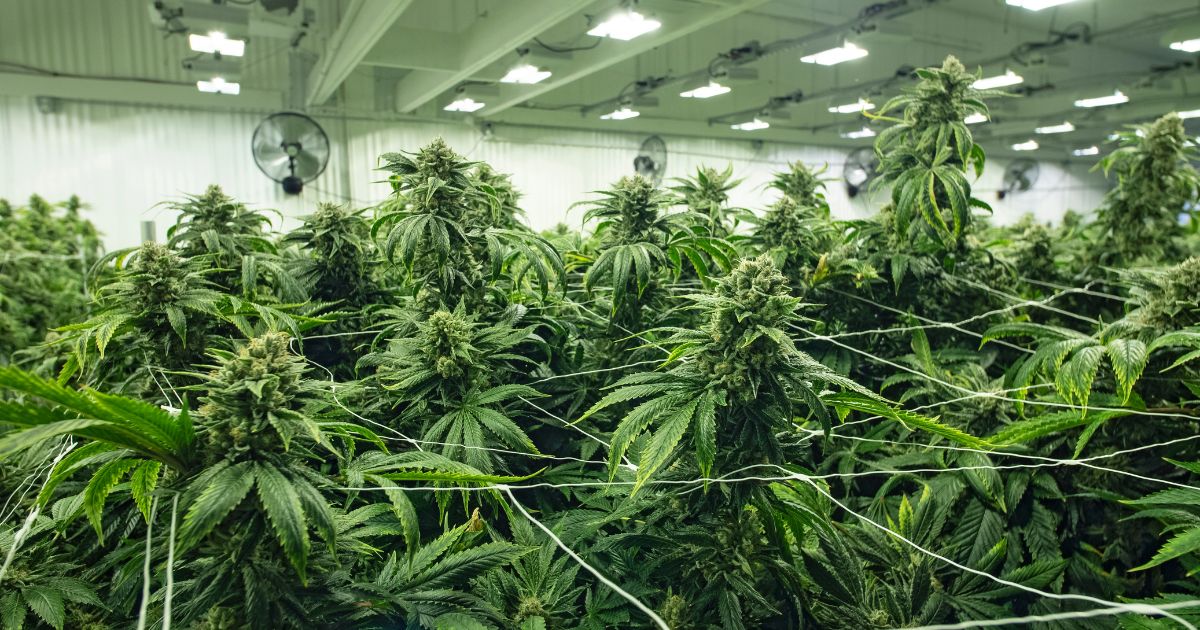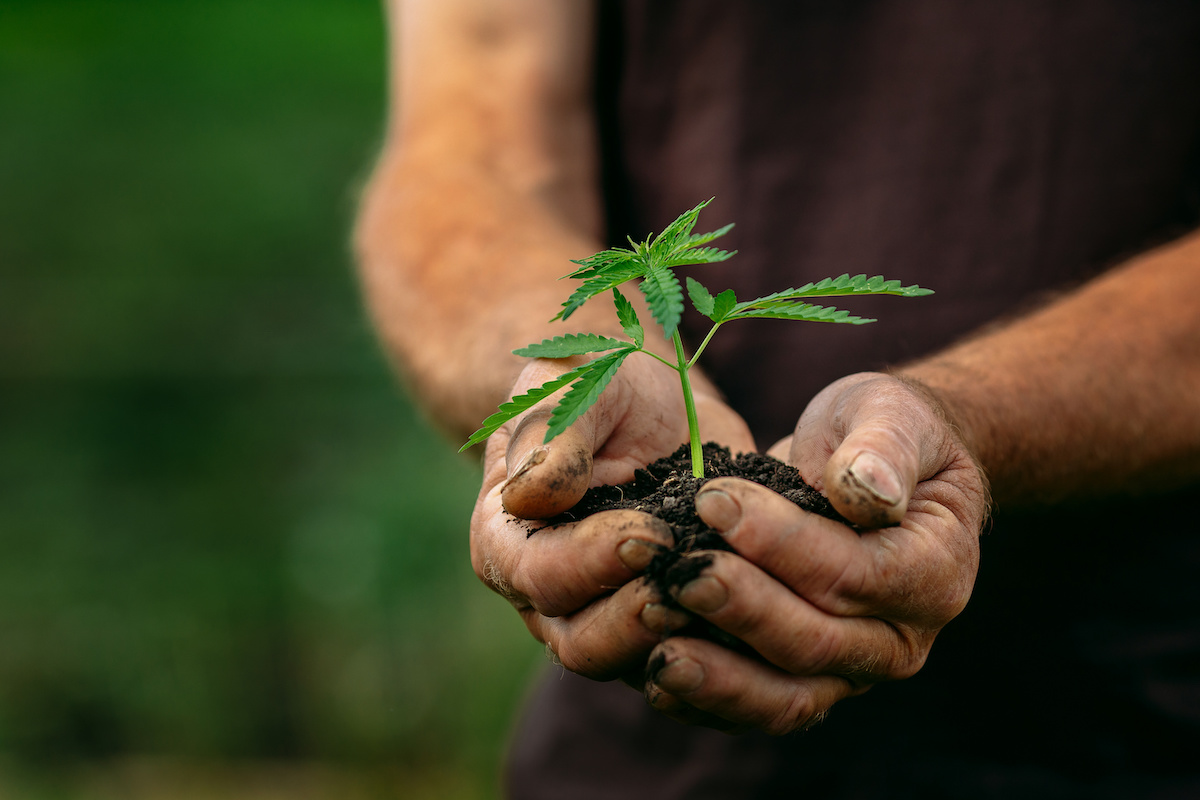
Sovereignty’s Green Horizon: The Native American Cannabis Industry Forges Economic Self-Determination
In the vast, often overlooked landscapes of Native American reservations, a quiet revolution is taking root. Beyond the familiar glint of casino lights, tribes across the United States are eyeing a new form of economic development: cannabis. This burgeoning industry, fraught with complex legal challenges and historical burdens, represents not just a chance for financial prosperity but a powerful assertion of tribal sovereignty, offering a unique path to self-determination and a brighter future for communities long underserved.
For centuries, Native American nations have faced immense economic hardship, often stemming from the loss of ancestral lands, forced assimilation policies, and a history of underinvestment. While the gaming industry provided a significant boost for many tribes, offering crucial revenue for social programs, infrastructure, and job creation, it has not been a panacea. Many reservations remain plagued by high unemployment rates, poverty, and limited access to essential services. Against this backdrop, the burgeoning multi-billion-dollar cannabis market presents an unprecedented opportunity – one rooted in the inherent rights of tribal governments.
The Bedrock of Sovereignty
At the heart of the Native American cannabis industry lies the principle of tribal sovereignty. Federally recognized tribes are "domestic dependent nations," possessing inherent governmental authority over their lands and citizens, a status affirmed by treaties, Supreme Court decisions, and federal law. This unique legal standing means that tribal lands are not subject to state laws in the same way private or municipal lands are. While federal law still classifies cannabis as an illegal Schedule I drug, the federal government has largely adopted a policy of non-interference with state-legal cannabis markets, creating a grey area that tribes are now navigating.
This framework was notably influenced by the 2013 "Cole Memo," an Obama-era Department of Justice guidance that outlined federal enforcement priorities in states where cannabis was legal. Although rescinded by Attorney General Jeff Sessions in 2018, its spirit of deference, coupled with the federal government’s trust responsibility to tribes, laid the groundwork. "The Cole Memo, while no longer active, essentially told tribes, ‘If you meet these guidelines, we’re not going to bother you,’" explains Blake Trueblood, Director of Business Development at the National Center for American Indian Enterprise Development (NCAIED). "It gave tribes a blueprint, and many have since developed sophisticated regulatory frameworks that often exceed state standards."

Tribes, therefore, possess the authority to legalize and regulate cannabis cultivation, processing, and sales within their reservation borders, independent of the surrounding state’s laws. This has led to a fascinating "checkerboard" jurisdiction, where a tribe in a state with strict cannabis prohibition might operate a thriving cannabis market, creating both opportunities and legal complexities.
A Green Economic Horizon
The economic promise of cannabis for Native American tribes is substantial. For communities struggling with limited resources, a successful cannabis operation can generate significant revenue for critical tribal programs. This can include funding for healthcare, education, elder care, housing, infrastructure development, and cultural preservation initiatives.
Job creation is another immediate benefit. From cultivation and processing to retail, security, and administrative roles, the industry demands a diverse workforce. These are often well-paying jobs that can keep tribal members on the reservation, reversing the trend of out-migration for economic opportunity. "We’re not just selling a product; we’re building a sustainable economy for our future generations," stated a representative from the Suquamish Tribe in Washington State, one of the early success stories in tribal cannabis. Their Port Madison Enterprises operates a retail dispensary, providing substantial revenue for tribal services and jobs for tribal members.
Beyond direct employment, the cannabis industry can stimulate ancillary businesses. This includes everything from specialized agricultural suppliers and packaging companies to marketing firms and security services. It can also diversify tribal economies, reducing reliance on single industries like gaming or resource extraction, which are often susceptible to market fluctuations.
Furthermore, tribal cannabis operations can become significant tourist attractions. Much like tribal casinos, a well-regulated and culturally integrated dispensary or cultivation facility can draw visitors from outside the reservation, bringing additional revenue to the local economy through related services like hospitality, dining, and other retail.
Navigating the Thicket of Challenges
Despite the immense potential, the path to a thriving tribal cannabis industry is paved with significant challenges. The most formidable hurdle remains federal prohibition. While the Department of Justice has largely adopted a hands-off approach, the specter of federal intervention, particularly under different administrations, always looms.
This federal illegality creates a cascade of practical problems:

- Banking: Perhaps the most acute challenge is access to banking services. Federally insured banks are reluctant to work with cannabis businesses, even those operating legally under state or tribal law, due to the risk of money laundering charges. This forces many tribal operations to deal primarily in cash, creating security risks and making financial management difficult.
- Taxation (IRS Section 280E): Under federal tax law (IRS Section 280E), businesses dealing in Schedule I controlled substances are prohibited from deducting ordinary business expenses from their gross income. This punitive tax burden can severely impact profitability and hinder growth for cannabis businesses, including those operated by tribes.
- Capital Investment: The lack of traditional banking makes it difficult for tribes to secure loans or attract outside investment for startup costs, which can be substantial for cultivation and processing facilities.
- State Interference: While tribes possess sovereign authority, states often attempt to assert jurisdiction or influence tribal cannabis operations, particularly regarding product transportation across state lines or sales to non-tribal members. This can lead to legal battles and regulatory friction.
- Regulatory Capacity: Developing and enforcing a comprehensive "seed-to-sale" regulatory framework requires significant tribal government capacity, including legal expertise, enforcement personnel, and scientific testing capabilities.
- Internal Tribal Debates: Not all tribes are eager to embrace cannabis. Some communities have cultural or spiritual objections, while others are wary of potential social impacts or the legal risks. The Menominee Indian Tribe of Wisconsin, for instance, voted against legalizing medical marijuana on their reservation in 2015, highlighting the diverse perspectives within tribal nations.
Building Robust Regulatory Frameworks
To mitigate risks and ensure responsible operations, tribes are diligently crafting their own robust regulatory frameworks. These tribal cannabis ordinances often mirror or even exceed the stringency of state regulations, incorporating provisions for:
- Licensing and permitting: Strict requirements for cultivators, processors, and dispensaries.
- Product testing: Mandatory testing for potency, pesticides, and contaminants to ensure consumer safety.
- Seed-to-sale tracking: Systems to monitor cannabis products from cultivation to final sale, preventing diversion to illicit markets.
- Public health and safety: Regulations on packaging, labeling, and advertising, often including restrictions on sales to minors.
- Environmental standards: Guidelines for sustainable cultivation practices.
- Security measures: Protocols to protect facilities and products.
These comprehensive regulatory schemes demonstrate the tribes’ commitment to operating responsibly and lawfully, further strengthening their argument for federal recognition of their cannabis enterprises.
The Future: A Call for Federal Clarity
The future of the Native American cannabis industry is inextricably linked to the broader national debate around federal cannabis legalization. Should cannabis be descheduled or reclassified at the federal level, many of the banking and tax hurdles would disappear, unleashing a wave of investment and opportunity for tribal nations.
However, even with federal legalization, it will be crucial for any new federal framework to explicitly acknowledge and respect tribal sovereignty. This means ensuring tribes retain their inherent right to regulate cannabis on their lands, rather than being subsumed under state or federal regulatory bodies. As Native American leaders often emphasize, "This isn’t just about cannabis; it’s about our right to self-govern, to chart our own economic destiny."
The journey of the Native American cannabis industry is a testament to resilience, innovation, and the enduring power of sovereignty. Faced with historical injustices and ongoing challenges, tribes are leveraging their unique legal status to cultivate not just a plant, but a pathway to economic independence, cultural revitalization, and a healthier, more prosperous future for their people. As the green shoots of cannabis emerge on sovereign lands, they symbolize a powerful and transformative assertion of self-determination, promising a vibrant green horizon for Native American nations.


